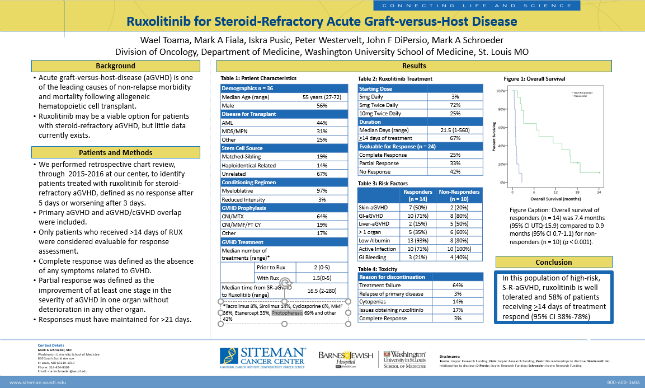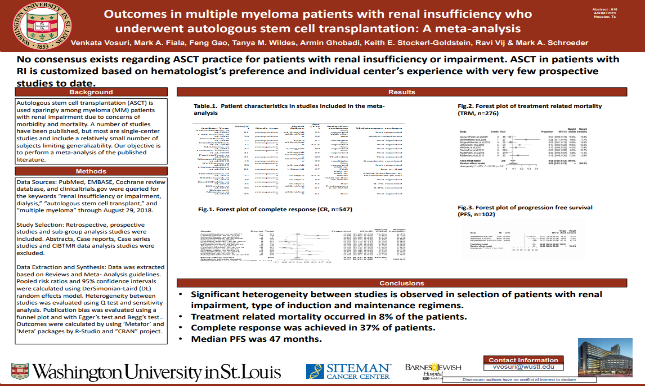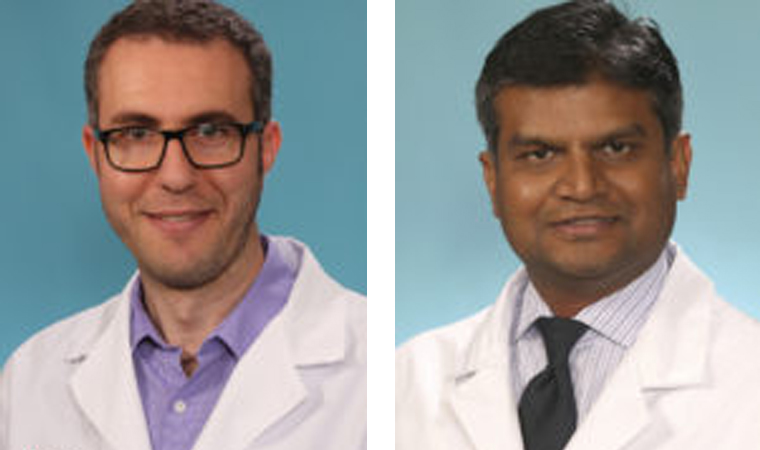Hospitalists, Dr. Wael Toama and Dr. Venkata Vosuri, had the great opportunity to participate in the 2019 Transplantation & Cellular Therapy (TCT) meeting, held Feb 20-24 in Houston,Texas. The TCT meeting combined annual meetings of the American Society for Blood and Marrow Transplantation (ASBMT) and the Center for International Blood & Marrow Transplant Research (CIBMTR). TCT is an important event gathering the most current projects and proposals by investigators, clinicians, clinical research professionals and others that work in hematopoietic cell transplantation and cellular therapy. Highlights of the meeting was the emerging role of CAR-T cell therapy in hematological malignancies.
For the TCT event, Dr. Toama presented two posters of retrospective analysis of patients who used Ruxolitinib for steroid refractory Graft Versus Host Disease (GVHD).

GVHD is still one of the most leading causes of non-relapse morbidity and mortality following allogeneic hematopoietic cell transplant. Incidence rate differs between acute and chronic GVHD but in general 60%-85%. In acute GVHD, steroids are the first line and mainstay of therapy with response percentage 50-55% leaving around half of patients in need for the second line. Many viable options have been using for steroids refractory acute GVHD but none is FDA approved yet. Ruxolitinib is one of these options and now used compassionately or under research umbrella. Their analysis discloses 58% response rate with improvement in overall survival from 0.9 to 7.4 months.
Dr. Vosuri presented a poster titled “Outcomes of Autologous Stem Cell Transplantation in Multiple Myeloma Patients with Renal Insufficiency: A Meta-Analysis.”

Autologous stem cell transplantation, (ASCT) is used sparingly among myeloma (MM) patients with renal impairment due to concerns of morbidity and mortality. A meta-analysis was performed of the published literature. Their study found that treatment related mortality (TRM) occurred in 12% of the patients. Complete response was achieved in 39% of above patients.
